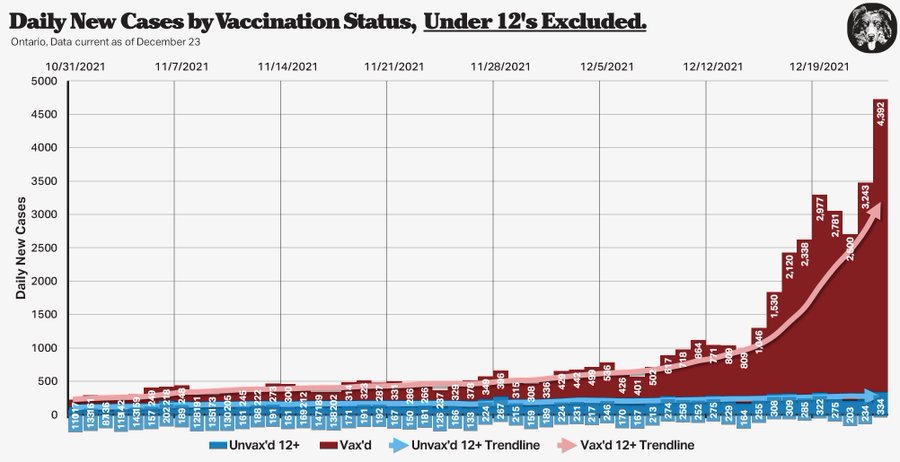-
fromBascha Mika
–
shut down
–
Bascha Mika speaks to the SPD politician Wolfgang Thierse about uncertainty in the pandemic, the loss of composure and selfish narcissism of freedom.
Mr Thierse, the year is on its last legs. How do you feel when you look back on 2021?
It was another year of crisis. The corona pandemic has once again reminded us of our vulnerability. And the contingency of life. We don’t have everything under control. Proud humanity does not rule everything – that is almost an insult. Another insult, which we can handle better socially and psychologically, is the flood disaster. In the past one would have spoken of a divine judgment as a punishment for the destruction of the climate. And then this year also includes the many violent conflicts that the world community cannot contain, regardless of which continent we are looking at. 2021 was a year of very different but profound shocks.
Contingency and chance do not fit into political business at all. For politicians, reacting appropriately to the unpredictable is pure hell.
Absolutely. Contingency experiences are also borderline experiences. They remind you of what political decisions always are – especially in crisis situations: decisions made under conditions of uncertainty. You can act to the best of your knowledge and belief and still do not know whether the effect you want will be achieved.
Thierse on the corona situation in 2021: Government must react to the new situation
Which bothered the old government quite a bit this year and caught the new one off guard …
… because the pandemic situation is constantly changing. The next wave, the next virus mutation and previous decisions no longer fit the situation. And then politicians are also accused of aligning their measures with new knowledge. Nothing would be more stupid than sticking to the old view in the face of a new situation.
“The constant demonstrators expect a lot from the state and at the same time despise it because it does not offer the quick solutions.”
Journalists like to claim that trust falls and the need for security is shaken when politicians revise their decisions. How much security do you need?
We live in the midst of violent, simultaneous changes. There is the ecological challenge, the globalized world with its delimitation, competition and simultaneity, digital transformation, demographic change, ethnic, cultural, ideological and religious pluralization … People understandably react to so many upheavals with a stronger need for security , according to home and orientation. This endeavor has increased dramatically in the last few years of the crisis.
Uncertainty leads to sometimes aggressive protest: anti-vaccination opponents, corona deniers and “lateral thinkers” on the “Monday walk”.
© Thomas Vonier/Imago Images
–
Isn’t this a phenomenon of western modernity? In the past, people had to live with a lot more insecurities.
There has always been a need for security. Religion, too, is an answer to this fundamental human desire. And it is not a bad thing to wish for security and a sense of belonging. There is an apt sentence by Jean Améry: “You have to have a home in order not to need it.” Even the strong, self-confident individuals of the modern age cannot completely erase this basic need. At the same time, we have apparently forgotten how to react appropriately and calmly when collateral collapses.
Wolfgang Thierse: Right-wing extremist ideologies serve the needs of corona protesters
That heralds the populist hour …
… Yes, when the longing for simple answers and the strong figure grows, which releases me from the frightening, overwhelming problems. That helps to understand what we are currently experiencing in East Germany. This is where the current wave of change meets people who have struggled through the extensive upheaval after 1990 – and by no means all of them. New uncertainty meets old uncertainty here, and some are then aggressively driven onto the streets. The constant demonstrators expect a lot from the state and at the same time despise it because it does not offer the quick solutions. This need is then served by right-wing extremist ideologues, who have looked for the East as a field of action as a general staff.
Their historical and biographical interpretation is undoubtedly plausible – but in no way explains the distorted perception of reality that has spread especially in Saxony and Thuringia.
These people actually live in a different world. The split in the perception of reality – and this does not only apply to the East – is a sign of an areligious madness, which, however, functions like a religious madness. This includes not only longing for a savior, but also finding a guilty party. This is currently becoming particularly glaring. I’m afraid there will have been a lot of arguments in families at Christmas, because in assessing the pandemic there are abysmal contradictions and you can no longer even talk to each other.
To person
Wolfgang Thierse was born in 1943 in Breslau (now Wroclaw). He is a cultural scientist and Germanist by profession.
He was a member the freely elected people’s chamber and chairman of the SPD in the GDR and from 1990 to 2013 member of the Bundestag, plus many years Bundestag President and Vice President, party vice of the SPD, chairman of the Fundamental Values Commission and the Cultural Forum of Social Democracy and member of the Central Committee of German Catholics.
–
Just in time for Christmas, the corona deniers could also feel supported by a cardinal. You yourself, Mr. Thierse, are an avowed Catholic. What drives a high church dignitary like Gerhard Ludwig Müller to spread conspiracy gossip?
Such opinions exist in society and obviously also in the Church. But I don’t have to take every cardinal seriously – and certainly not this one. The Catholic Church is a very large, colorful shop. Incidentally, also the oldest global player in the world …
… and a terrifyingly authoritarian association. Democracy works differently. It cannot be done without the responsibility of the individual. Where is that with your East German compatriots?
Apparently some of the East Germans cannot develop this responsibility. I say this without moral reproach. Self-responsible citizenship could not arise in a custodial state like the GDR. And these imprints continue to have an effect: mentalities emerge slowly, change slowly and are carried on intergenerationally. They are stored in the subconscious and often evade reflection. And the disappointments after the fall of the Wall also play a role.
Wolfgang Thierse speaks about “sticky East German feeling of inferiority”
That all sounds very understanding in itself.
My understanding is quite limited. There is an almost sticky East German feeling of inferiority that we carry with us as a backpack. We were always the second class compared to the West – and that still applies to this day. The Wessis are still the stronger and more successful, so an old inferiority complex is constantly confirmed. I have been telling my Ossis for a long time that they have every reason to look confidently on themselves. Not only because of the peaceful revolution, but also because we have passed a deep and painful process of transformation. The Wessis did not have to make this fundamental collective experience.
The corona deniers like to invoke democratic freedom. You called it a “depraved understanding of freedom”.
Yes, because what becomes visible there is a highly problematic concept of freedom, for example in connection with mandatory vaccination. The general compulsory vaccination has to be discussed, after all there are pragmatic arguments for and against. And then it is an act of my freedom and self-determination not to be vaccinated. But the consequences of my decision – whether by infecting others or occupying intensive care units – then have to be borne by others and the state should pay for the costs.
Wolfgang Thierse. Photo Imago Images.
© imago images/Future Image
–
On the other hand – aren’t freedom and personal rights a very valuable asset that is worth taking to the streets for?
For sure. But there is something very dangerous about separating the existential connection between freedom and responsibility. Autonomous self-determination thus becomes an individual claim against my fellow human beings and against the state. When I don’t understand that I am only free when others are free too; that I am only free if the responsibility for what I do towards the community counts, that freedom is tied to an ethical order – if I do not understand all of this, it is no longer about freedom, but about an egocentric freedom narcissism.
Wolfgang Thierse on the division in society
At the same time, the East German screamers for freedom are trying to beat the system at its own pace – by putting the neoliberal creed of self-assertion against others into practice.
It’s hard to deny. But the old, ultimately neoliberal message “everyone is the maker of their own happiness” forgets that there have to be prerequisites for me to be able to forge my happiness. That nobody is able to do it alone, but needs the others. That is why freedom is such a demanding value. I mustn’t run it down on egoism, on individualism and self-realization.
This year, the threatening term “divided society” was reflexively used to describe the situation. Is that your term too?
Not at all. If only not because those who oppose the vaccination accuse the proponents of dividing society. The vast majority of citizens in this country consider the impact on the common good when making their decisions – as can be seen from the number of people who have been vaccinated. And then there is the not very small, less sympathetic minority who live in a separated world. But these people are not dangerous for democracy – they are only dangerous for their fellow human beings.
You mentioned earlier the many violent conflicts that shaped the year 2021. Afghanistan is far away, Russia and Ukraine less so. Can you think of a conciliatory message at the end of the year?
Unfortunately, we do not live in a peaceful world and we also have neighbors who are definitely aggressive. But – the Social Democrats should not completely forget certain experiences of the East and détente, even if the times are different today than 50 years ago. The basic principle of the policy of détente at the time was a very simple sentence: There is no security against one another, but only with one another. This simple doctrine has to be translated into today’s policy towards Russia and other countries. (Bascha Mika)
–
Related posts:
Metalheads, donate your blood! Exciting blood donation campaign now at UKE Hamburg.You have always eaten them together but they can cost you your life. Lethal to the liverMen and women, why do we fight the longer we meet?A "massive" increase in cholera infections in Africa and a new vaccine strategy


